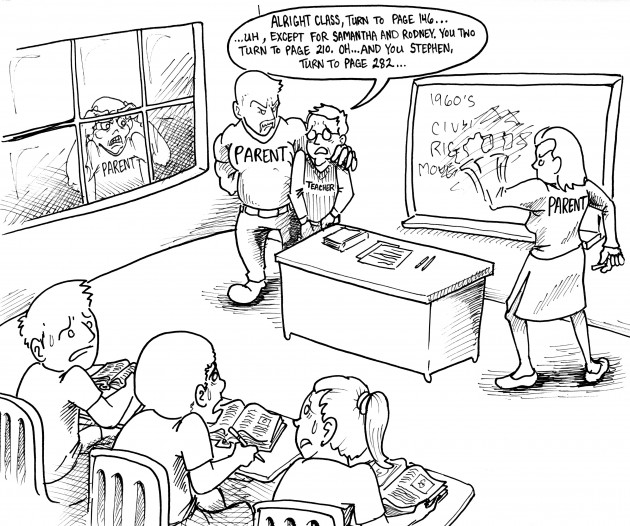
If you don’t want your kids to learn about the Civil Right Movement, the French Revolution, gravity or any other number of topics, you may consider moving to New Hampshire.
Recently, lawmakers in New Hampshire passed legislation allowing parents to request alternative lesson plans for any school curriculum with which they disagree. State Rep. J.R. Hoell, R-Dunbarton, sponsored the bill because of its ability to allow parents to make moral and academic stands in school systems. One example he listed was a parent preferring the phonics language learning system over the “whole language” approach.
New Hampshire Gov. John Lynch, a Democrat, vetoed the bill but was overruled by both the state House and Senate. Lynch voiced concern for the quality of education in his veto message.
“Even though the law requires the parents to pay the cost of alternative, the school district will still have to bear the burden of helping develop and approve the alternative. Classrooms will be disrupted by students coming and going, and lacking shared knowledge,” he said.
While parents should be active in their children’s education, how much control should they have over public school curriculum? To be able to request alternative lessons for any part of the curriculum they do not agree with is ridiculous. Entire parts of history could be ignored simply because parents find them unpleasant. Science theories could be skipped and math teaching methods changed.
The danger of this bill is a generation of students lacking common knowledge – things they need to know when they are outside of school. How can a child that was allowed to skip lessons on gravity or World War II move on to higher education?
Standardized testing will not make allowances for these children, and neither will professors. This bill is only encouraging ignorance.
Granted, most if not all parents will be fine with their students learning basic science and math. But other lessons, such as controversial moments in history, force students to think critically, which is needed to succeed in the workforce.
An alternate way for parents to be involved in their child’s education needs to be found. Rather than allowing parents to deprive their child of shared knowledge, state officials should encourage concerned parents to stress family values and beliefs at home. If a parent thinks slavery is too terrible for his or her child to learn about, instead of keeping the child ignorant of our nation’s dark past, he or she should sit down with the child and explain why it is a horrible thing.
Parents should be allowed to voice concerns with school curriculum, but there needs to be unity in public education. Otherwise we will see a generation with large discrepancies in common knowledge. Occasional, alternate lesson plans on controversial topics may be harmless, but the ability to object to literally anything in the curriculum is too much. Parents should take responsibility for their children’s education outside of the classroom, and if they don’t like what is taught in public schools, there is always private school or home school.
Lawmakers in New Hampshire need to think about the possible impact their decisions on education will have on future generations before they pass laws. Hopefully they will do this before Hoell proposes his next bill, which will seek to stop mandatory attendance in public schools to create a market-based approach to education.






